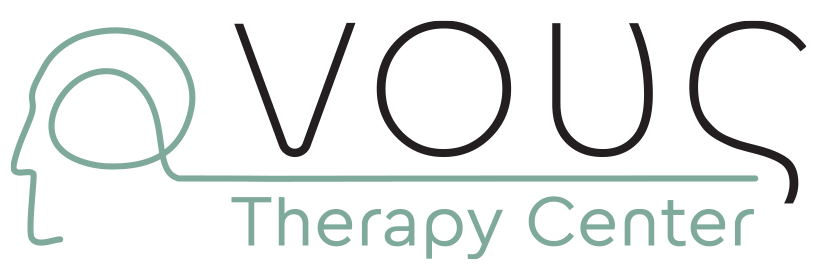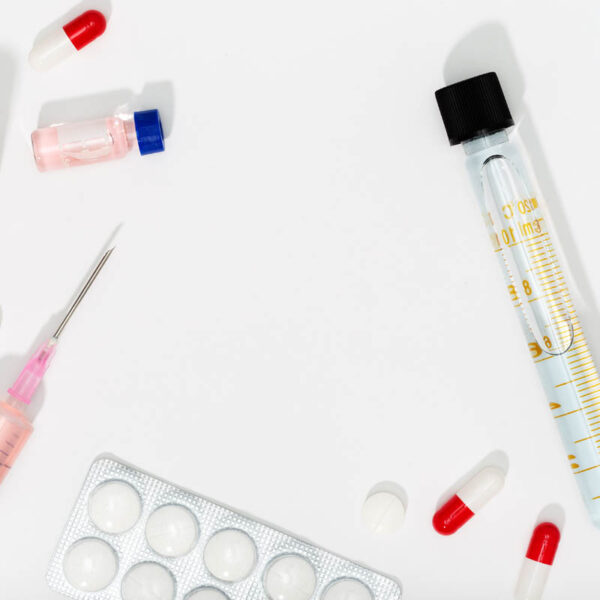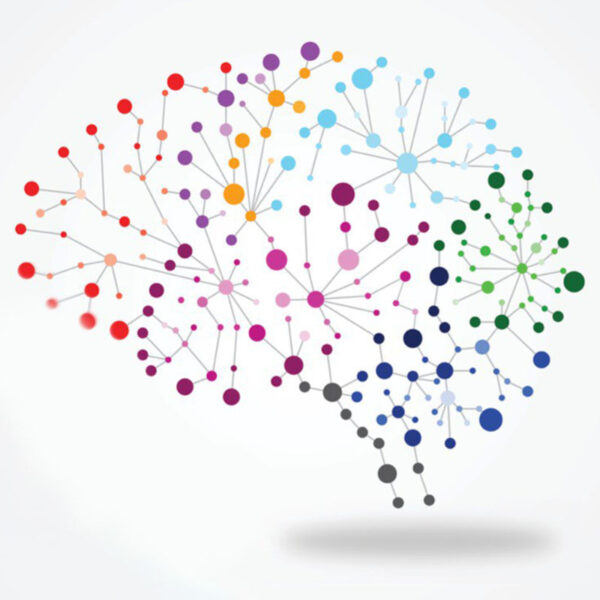
Psychotic Disorders
Schizophrenia belongs to psychotic disorders and is characterized by a diverse range of symptoms, primarily stemming from disturbances in thinking, emotions, and behavior. Individuals with schizophrenia often struggle to judge and perceive reality while experiencing stimuli and experiences (visual, auditory, olfactory, tactile) that do not exist. Thoughts, emotions, language, sensations, self-perception and behavior are significantly distorted.
Schizophrenia typically begins in late adolescence or early adulthood. It is a chronic mental disorder with prodromal, active, and residual phases and it presents different clinical forms and types. Its symptoms are primarily categorized as positive and negative.
Positive symptoms include delusional ideas, hallucinations (visual, auditory, etc.), disorganized speech (incoherence or frequent derailment) or disorganized behavior (eccentric, aggressive, self-destructive).
Negative symptoms include reduced affect (emotional expression), diminished levels of pleasure or interest, limited speech fluency or organizational ability, catatonia and withdrawal.
Motor symptoms are often present and cognitive functioning is impaired. As a result, individuals with schizophrenia experience a significant decline in various levels of functioning and struggle to adapt to daily life and its demands, while also placing pressure on their family environment.
During the course of the disorder, there are typically distinct episodes and it's crucial to emphasize the importance of early intervention at the first episode. The first episode is pivotal for the future course of the illness and the individual's overall life course. The earlier the diagnosis and intervention and the more stable the care provided for the disorder and the individual, even in mild symptomatology, the lower the chances of relapse and the increase in the duration and intensity of symptoms.
Although schizophrenia has a chronic course and can become severe, it is not impossible for individuals to lead a relatively normal life with appropriate support and professional help.
Schizophrenia typically begins in late adolescence or early adulthood. It is a chronic mental disorder with prodromal, active, and residual phases and it presents different clinical forms and types. Its symptoms are primarily categorized as positive and negative.
Positive symptoms include delusional ideas, hallucinations (visual, auditory, etc.), disorganized speech (incoherence or frequent derailment) or disorganized behavior (eccentric, aggressive, self-destructive).
Negative symptoms include reduced affect (emotional expression), diminished levels of pleasure or interest, limited speech fluency or organizational ability, catatonia and withdrawal.
Motor symptoms are often present and cognitive functioning is impaired. As a result, individuals with schizophrenia experience a significant decline in various levels of functioning and struggle to adapt to daily life and its demands, while also placing pressure on their family environment.
During the course of the disorder, there are typically distinct episodes and it's crucial to emphasize the importance of early intervention at the first episode. The first episode is pivotal for the future course of the illness and the individual's overall life course. The earlier the diagnosis and intervention and the more stable the care provided for the disorder and the individual, even in mild symptomatology, the lower the chances of relapse and the increase in the duration and intensity of symptoms.
Although schizophrenia has a chronic course and can become severe, it is not impossible for individuals to lead a relatively normal life with appropriate support and professional help.
Delusional disorder is a type of psychotic disorder in which an individual experiences a specific delusion at some point in their life. Delusions are persistent and fixed beliefs about experiences and situations that do not align with reality. Examples of such delusional thoughts and types include:
- Persecution, Conspiracy, Surveillance (e.g., the person feels they are the target of malicious behaviors, that someone is trying to control their thoughts and emotions)
- Guilt and self-reproach (e.g., unfounded feelings of remorse and intense guilt)
- Reference (e.g., believing that people around them or the television are referring to them)
- Somatic or bodily (e.g., believing that something unexplained or destructive is happening in their body)
- Grandiosity (e.g., feeling unique, distinct from others, or embodying significant historical personalities)
- Jealousy or Erotomania (e.g., believing that their partner is unfaithful)
This disorder typically begins in middle age, and there is usually a specific delusional idea with intense belief that cannot be easily challenged, although cognitive functions are generally intact.
People with delusional disorder may not display overtly bizarre behavior, allowing them to remain functional for years without significant difficulties. However, they may face interpersonal and social challenges, and chronic stress can be experienced due to the difficulty in managing their thoughts.
The treatment for delusional disorder typically involves a combination of psychotherapy and antipsychotic medication.
Psychotic episodes can be painful and disorienting experiences for individuals who go through them. A psychotic episode refers to a period of time (usually one to two months) during which a person experiences a loss of contact with reality and significant distortions in their thoughts, perceptions, and emotions. These episodes are typically associated with psychotic disorders such as schizophrenia, schizoaffective disorder or bipolar disorder with psychotic features. However, they can also occur in other situations, such as certain medical conditions or substance-induced psychosis.
The episode usually occurs suddenly, often triggered by a stressful factor, and the symptoms are quite intense, often frightening those around the affected person. During a psychotic episode, individuals may exhibit various symptoms, such as hallucinations, delusions, disorganized thinking or speech, and disturbances in perception and behavior. Hallucinations involve seeing, hearing, or feeling things that do not exist in reality, while delusions are distorted beliefs about reality. These symptoms can significantly impact an individual's ability to function and relate to others.
It is essential to emphasize that early diagnosis and therapeutic intervention during the first psychotic episode are crucial for the individual's recovery. With the right support, the transition to full-blown psychosis can be prevented, the risk of future relapses can be minimized, and the individual can return to a satisfactory level of functionality in their life, including their professional and social activities. Given the average age at which a first psychotic episode occurs, typically during adolescence to early adulthood, the importance of such intervention for overall quality of life and functionality cannot be overstated.
If you or someone you know is experiencing a psychotic episode, it is essential to seek immediate medical help. A mental health professional or healthcare provider can conduct a thorough assessment, provide an accurate diagnosis and develop an appropriate treatment plan. Treatment typically includes a combination of medication, psychotherapy and support services tailored to the individual's specific needs. Additionally, it is crucial to provide adequate support within the individual's close environment, both in terms of personal empowerment, knowledge, and understanding of the disorder, as well as in terms of the best possible support for the affected loved one.
The episode usually occurs suddenly, often triggered by a stressful factor, and the symptoms are quite intense, often frightening those around the affected person. During a psychotic episode, individuals may exhibit various symptoms, such as hallucinations, delusions, disorganized thinking or speech, and disturbances in perception and behavior. Hallucinations involve seeing, hearing, or feeling things that do not exist in reality, while delusions are distorted beliefs about reality. These symptoms can significantly impact an individual's ability to function and relate to others.
It is essential to emphasize that early diagnosis and therapeutic intervention during the first psychotic episode are crucial for the individual's recovery. With the right support, the transition to full-blown psychosis can be prevented, the risk of future relapses can be minimized, and the individual can return to a satisfactory level of functionality in their life, including their professional and social activities. Given the average age at which a first psychotic episode occurs, typically during adolescence to early adulthood, the importance of such intervention for overall quality of life and functionality cannot be overstated.
If you or someone you know is experiencing a psychotic episode, it is essential to seek immediate medical help. A mental health professional or healthcare provider can conduct a thorough assessment, provide an accurate diagnosis and develop an appropriate treatment plan. Treatment typically includes a combination of medication, psychotherapy and support services tailored to the individual's specific needs. Additionally, it is crucial to provide adequate support within the individual's close environment, both in terms of personal empowerment, knowledge, and understanding of the disorder, as well as in terms of the best possible support for the affected loved one.
Schizoaffective disorder is a complex mental illness that combines symptoms of both schizophrenia and a mood disorder, such as bipolar disorder or major depressive disorder. Individuals with schizoaffective disorder exhibit a range of symptoms, including:
- Hallucinations
- Delusions
- Disorganized Thinking
- Mood Fluctuations
- Reduced Social Functioning
Individuals with schizoaffective disorder may also experience cognitive difficulties, such as problems with concentration and attention. It's important to note that the symptoms and experiences associated with this disorder can vary widely among individuals. Therefore, it is crucial to be guided by a mental health professional who can assess the type, severity, and duration of schizoaffective disorder. This assessment informs the appropriate treatment approach, which typically combines psychotherapy and medication.
There are two subtypes of schizoaffective disorder:
Bipolar Type: In this subtype, individuals experience episodes of both mania (elevated or irritable mood) and depression, along with psychotic symptoms.
Depressive Type: In this subtype, individuals experience only depressive episodes with psychotic symptoms.
It is important to recognize that the symptoms and experiences associated with this disorder can vary widely among individuals. That's why it is crucial to be guided by a professional who can assess the type of schizoaffective disorder, its severity, and its duration accurately. These factors determine the appropriate treatment approach, which typically involves a combination of psychotherapy and medication.
Seeking professional help and establishing a strong support system are essential steps in managing schizoaffective disorder. Effective treatment often involves a combination of psychotherapy and medication tailored to the individual's specific needs.
Make an Appointment
If you experience the above symptoms, do not hesitate to contact us. The NOYS Therapy Center team is here for you.










